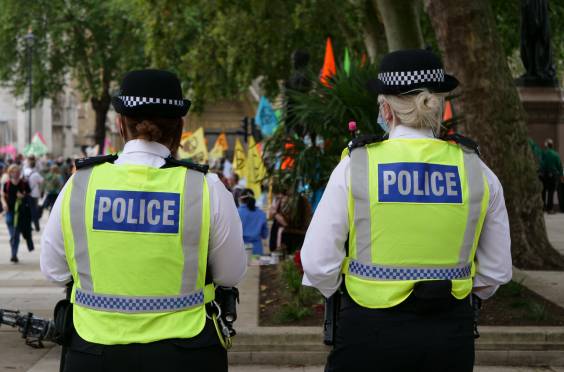What Is Drug Driving?
What Is Drug Driving?
Almost everyone understands that drunk driving is a serious offence. But did you know that it is against the law to drive after taking drugs, and in some cases, this includes prescription medicine? Find out everything you need to know about drug driving below, and remember, if you have been charged with drug driving, you do not have to face Court alone. An experienced Drug Driving Solicitor can advise you on possible defences to the charge of drug driving and represent you in Court.
How do drugs impact the human body and mind?
The effects of certain drugs on your body and brain can dramatically reduce your ability to drive safely. In the short term, drugs often alter neurotransmitter activity in the brain, leading to changes in mood, perception, and behaviour. Stimulants, such as cocaine or methamphetamine, increase the release of dopamine, creating intense feelings of euphoria, increased energy, and alertness. Conversely, depressants like opioids or benzodiazepines slow down neural activity, inducing relaxation and sedation.
What is the law concerning driving and drugs?
In England and Wales, the Drug Driving (Specified Limits) Regulations 2014 establish restrictions on eight controlled substances and eight prescription medications. A strict zero-tolerance policy is applied to illegal drugs, resulting in exceptionally low permissible levels for driving, essentially accommodating only unintentional exposure. Notably, the legality of possessing the illegal drug takes precedence over its potential impact on driving abilities. Therefore, whether or not the unlawful substance impairs your driving becomes irrelevant, as the possession of such drugs is inherently prohibited by law.
‘Illegal’ drug driving limits
Threshold limit in microgrammes per litre of blood (µg/L)
benzoylecgonine 50µg/L
cocaine 10µg/L
delta-9-tetrahydrocannabinol (cannabis) 2µg/L
ketamine 20µg/L
lysergic acid diethylamide 1µg/L
methylamphetamine 10µg/L
Methylenedioxymethamphetamine (MDMA) 10µg/L
6-monoacetylmorphine (heroin) 5µg/L
The capability to drive may be compromised by specific prescription medications. In such cases, the legal framework adopts a risk-based perspective, setting thresholds for the allowable concentration of the drug in your bloodstream.
Prescription drug driving limits Threshold limit in blood
clonazepam 50µg/L
diazepam 550µg/L
flunitrazepam 300µg/L
lorazepam 100µg/L
methadone 500µg/L
morphine 80µg/L
oxazepam 300µg/L
temazepam 1,000µg/L
Separate approach (to balance its risk)
Threshold limit in blood
Amphetamine 250µg/L
Following an extensive consultation, amphetamines were placed in a separate category (as seen in the table above). Studies show that low doses of stimulant drugs produce neutral or even stimulating effects on a range of psychomotor functions. People with ADHD who take low doses of amphetamines can even improve their driving skills. However, amphetamines are controlled drugs and, therefore, have a low limit.
How do the police test for drugs if I am pulled over whilst driving?
If the police stop you or you are involved in an RTA and the police are called to the scene, you may be asked to undergo a Field Impairment Assessment (FIA). An FIA includes walking in a straight line, balancing on one leg, or touching your nose. You will not be charged with drug driving if you fail an FIA as the tests are considered unreliable. However, failing an FIA is likely to result in the police requesting a saliva sample for roadside screening, checking for substances like cocaine and cannabis. If the police suspect you have taken drugs and are over the prescribed limit for driving, you will be taken to the police station where your permission will be sought to provide a blood sample. After the sample is taken, it should be divided, with half given to you for independent testing.
Can I refuse to supply a blood sample?
If the police ask you to provide a blood, breath, or urine sample, you cannot refuse unless you have a reasonable excuse. The police can charge you with failure to provide a specimen and, if you are convicted of drug driving, the Court can sentence you to a 12-month driving disqualification, a fine of up to £5,000, and/or community service. The Court does have the power to sentence you to six-months imprisonment for failing to provide a sample; however, this would only apply if you have been convicted of drunk or drug driving within the last ten years or if other aggravating factors are present.
What is the sentence if I am convicted of drug driving?
If you are convicted of drug driving, you face:
• Being banned from driving for at least 12 months.
• An unlimited fine.
• Up to six months in prison.
• A criminal record.
A note will be placed on your driving licence lasting 11 years stating that you have been convicted of drug driving.
Concluding comments
If you have been charged with a drug driving offence it is crucial to have an experienced Drug Driving Solicitor by your side. They will ensure your best interests are protected and examine all the defences available which may result in the charges against you being dropped before the court date or an acquittal.
If you have any questions regarding this article, please call us on 0300 3732424. If you have been arrested and require police station representation, please call our emergency number 0300 373399.

